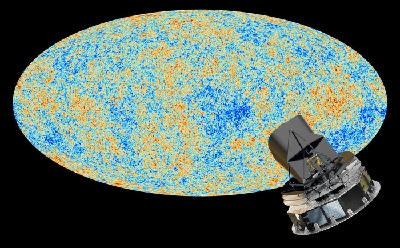A scale model for the early Universe
The Foundation for Fundamental Research on Matter (FOM) has awarded Prof. Diederik Roest of the Van Swinderen Institute for Particle Physics and Gravity a ‘FOM-Projectruimte’ grant for his project A scale model for the early Universe.

Recent measurements of the cosmic microwave background (CMB) by the Planck satellite have mapped out the early Universe in unprecedented detail. This has yielded crucial information on the properties of inflation, the proposed phase of accelerated expansion after the Big Bang during which the Universe became completely smooth up to quantum fluctuations. The properties of these quantum fluctuations can still be measured today as temperature fluctuations and polarization patterns in the CMB.
The Planck results suggest a remarkably simple characterization of this inflationary Universe, which can be phrased as an effective scale model. In his project, Roest investigates the observational predictions and the theoretical basis of this scale model. The latter includes e.g. the relation to cosmological attractors and spontaneous symmetry breaking. This will enhance our understanding of the inflationary phase, which has set the initial conditions for the entire Universe.
More news
-
14 January 2026
What the smell of the sea does to the clouds above Antarctica
